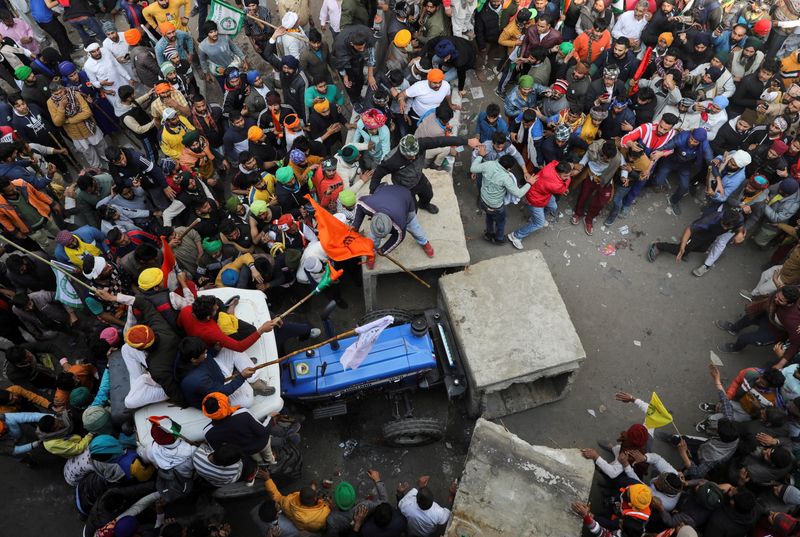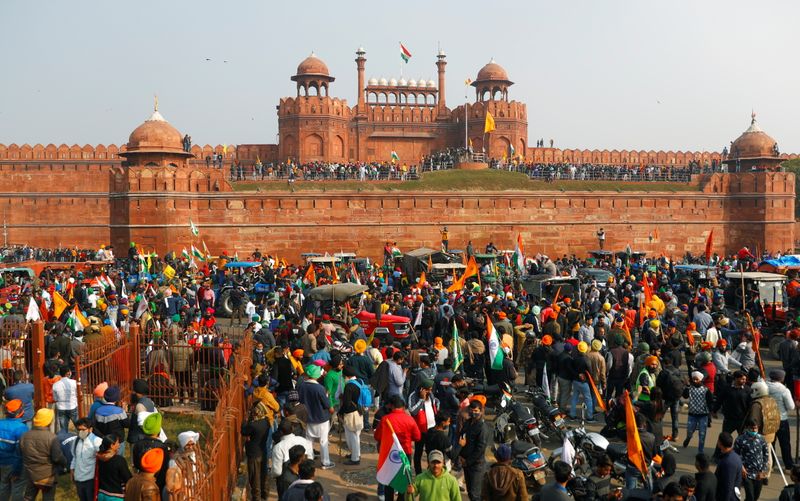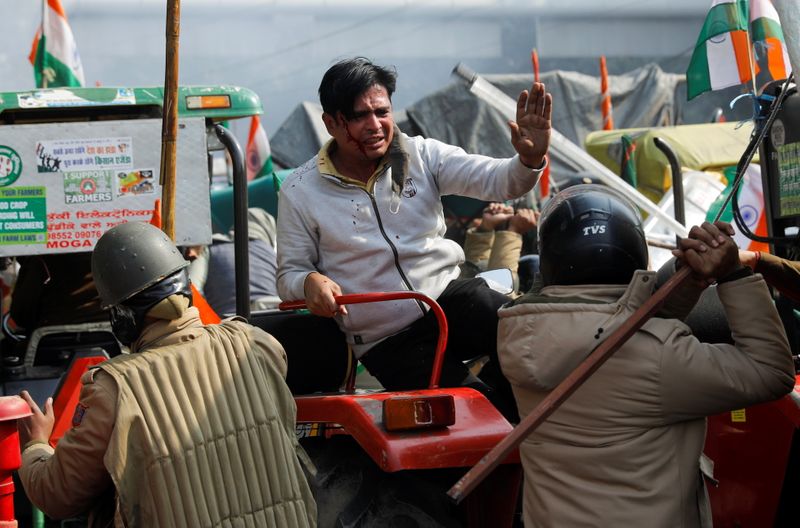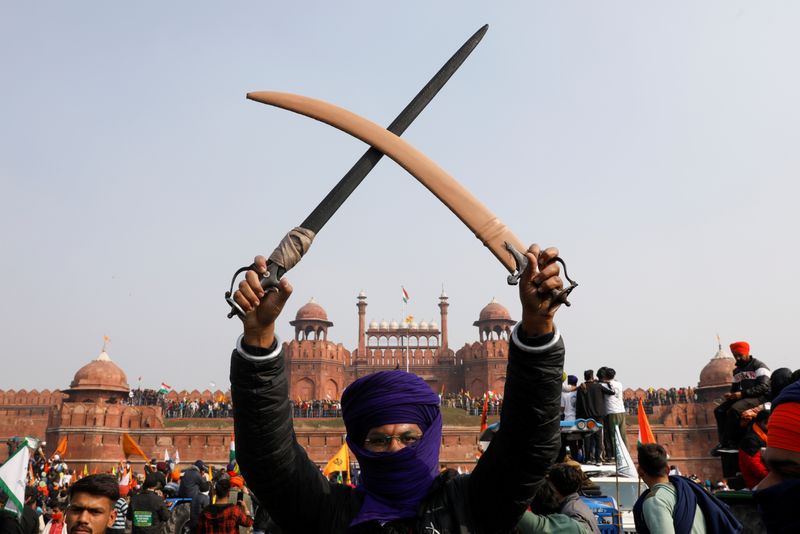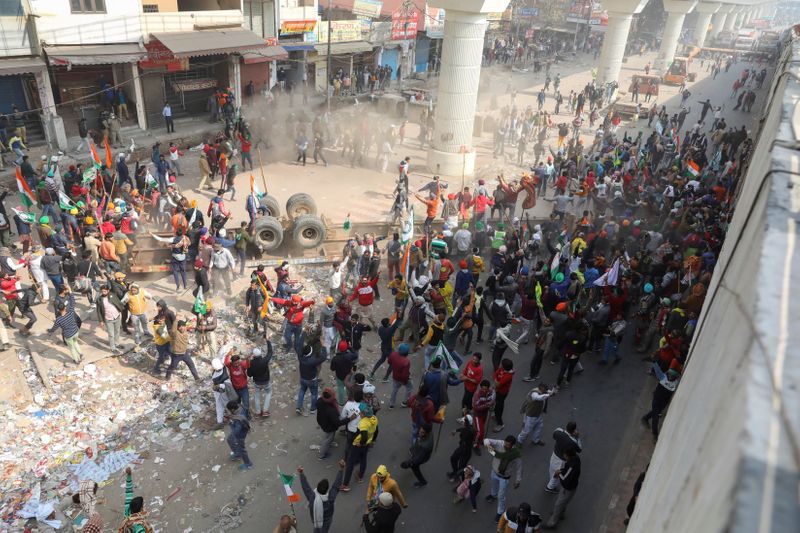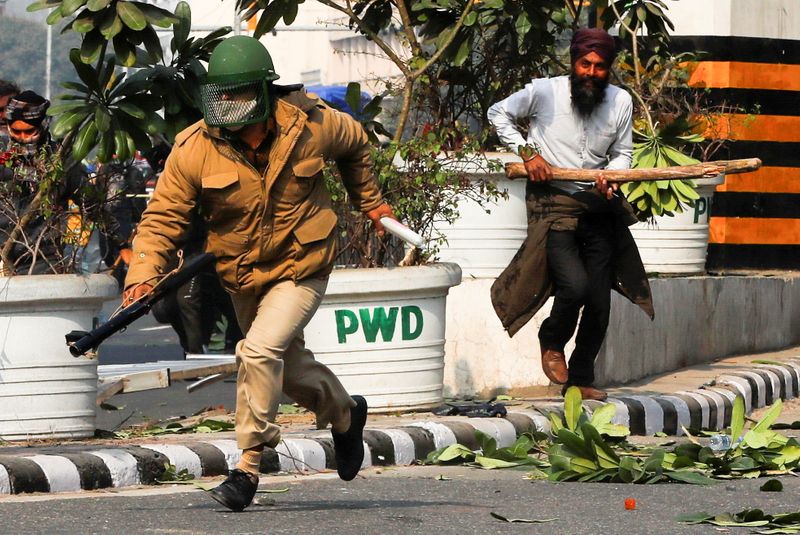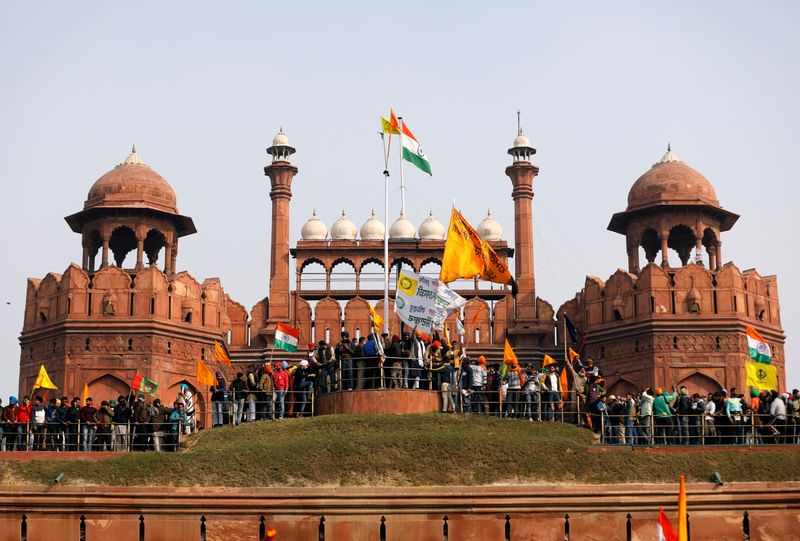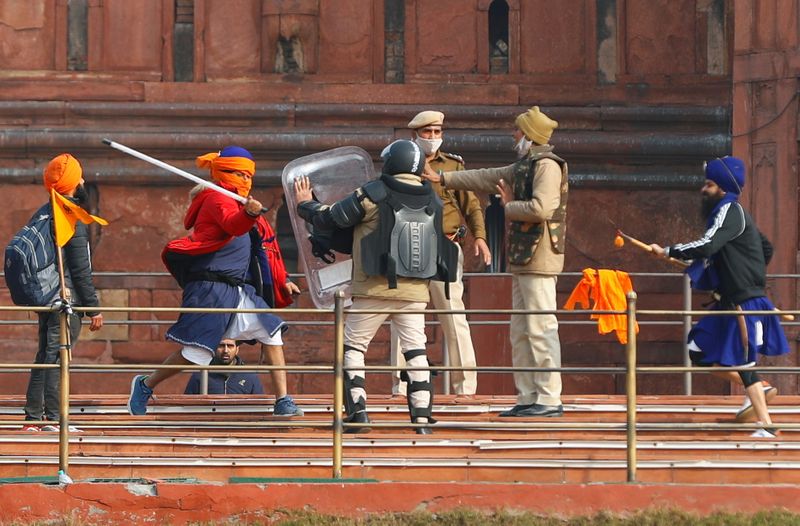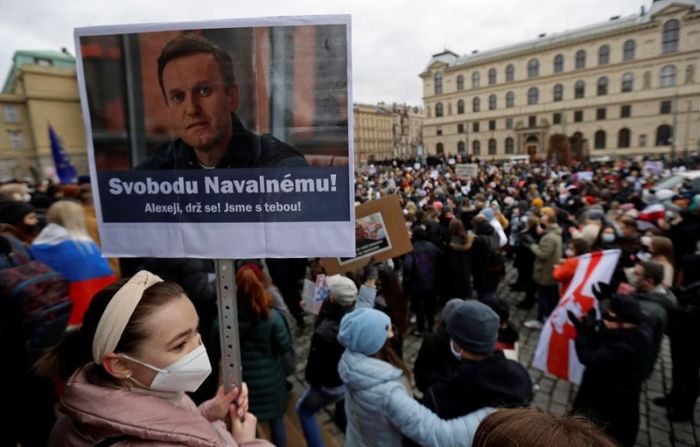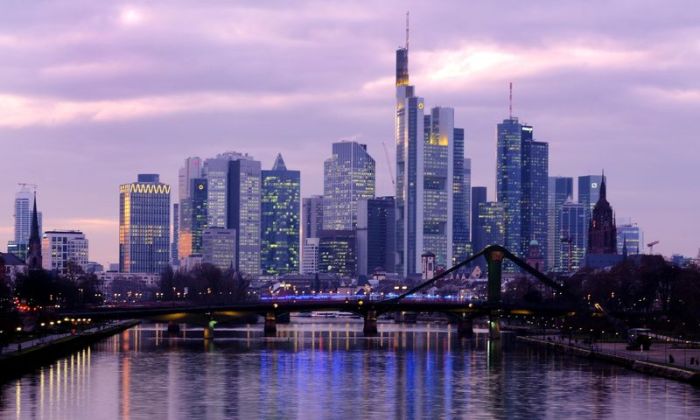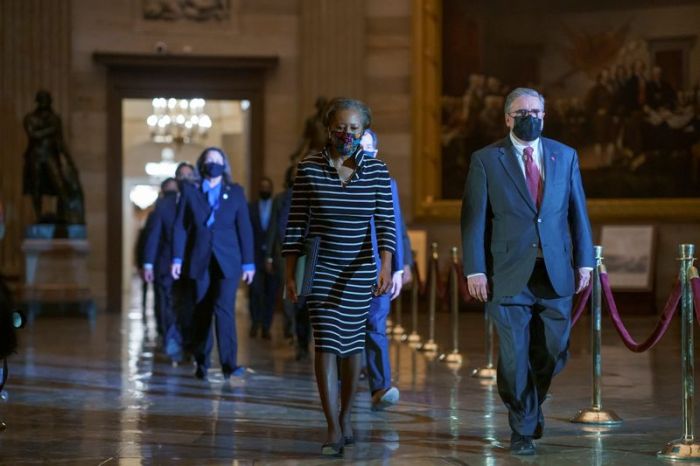NEW DELHI (Reuters) – Thousands of Indian farmers protesting against agricultural reforms on Tuesday overwhelmed police and stormed into the historic Red Fort complex in New Delhi after tearing down barricades and driving tractors through roadblocks.
Police fired tear gas in an unsuccessful bid to force the protesters back. One protester was killed, a witness said, and Delhi police said 86 officers had been injured across the city.
Some of those who scaled the walls of Red Fort carried ceremonial swords, scattering police who tried to prevent them from entering. Footage from Reuters partner ANI showed police jumping from the ramparts to escape. Once inside, the protesters hoisted flags.
Angered by laws they say help large, private buyers at the expense of producers, famers have camped outside the capital for almost two months, posing one of the biggest challenges to Prime Minister Narendra Modi since he came to power in 2014.
“Modi will hear us now, he will have to hear us now,” said Sukhdev Singh, 55, a farmer from the northern state of Punjab.
The body of one protester draped in an Indian tricolour lay in the street after the tractor he rode overturned in one clash, said a witness, Vishu Arora.
“He died right there,” Arora said.
A Reuters witness saw several police and protesters with head injuries following clashes at the Red Fort, from whose ramparts Modi delivers an annual speech.
The government ordered internet services in some parts of the capital to be blocked, according to mobile carrier Vodafone Idea, in an attempt to prevent further unrest.
LOST CONTROL
Tens of thousands of farmers began the day in a convoy of tractors festooned with Indian and union flags along the city’s fringes.
But hundreds of protesters – some on horseback – broke away from approved routes, heading for government buildings in the city centre where the annual Republic Day parade of troops and military hardware was taking place.
They commandeered cranes and used ropes to tear down roadblocks, forcing constables in riot gear to give way, Reuters witnesses said. A second group rode tractors to a traffic junction, also breaching barricades after clashes with police.
Police accused those who diverged from the agreed routes of “violence and destruction”.
“They have caused great damage to public property and many police personnel have also been injured,” a police statement said.
Protest organiser Samyukt Kisan Morcha said the groups deviating from set routes did not represent the majority of farmers.
“We also condemn and regret the undesirable and unacceptable events that have taken place today and dissociate ourselves from those indulging in such acts,” the group of farm unions said in a statement.
Amarinder Singh, chief minister of Punjab state, where many of the protesters came from, called the clashes “shocking”.
“The violence by some elements is unacceptable,” he said in a tweet. “It’ll negate goodwill generated by peacefully protesting farmers.”
FARMER PRESSURE
Agriculture employs about half of India’s population of 1.3 billion, and unrest among an estimated 150 million landowning farmers worries the government.
Nine rounds of talks with farmers’ unions have failed to end the protests, as farm leaders rejected the government’s offer to delay the laws for 18 months, making a push for repeal instead.
“The farm organisations have a very strong hold,” said Ambar Kumar Ghosh, an analyst at New Delhi think tank the Observer Research Foundation.
“They have the resources to mobilise support, and to continue the protest for a long time. They have also been very successful in keeping the protest really focused.”
(Reporting by Devjyot Ghoshal and Danish Siddiqui in Singhu, Anushree Fadnavis in Tikri and Adnan Abidi, Manoj Kumar, Mayank Bhardwaj and Alasdair Pal in New Delhi; Writing by Alasdair Pal; Editing by Clarence Fernandez and Angus MacSwan)

